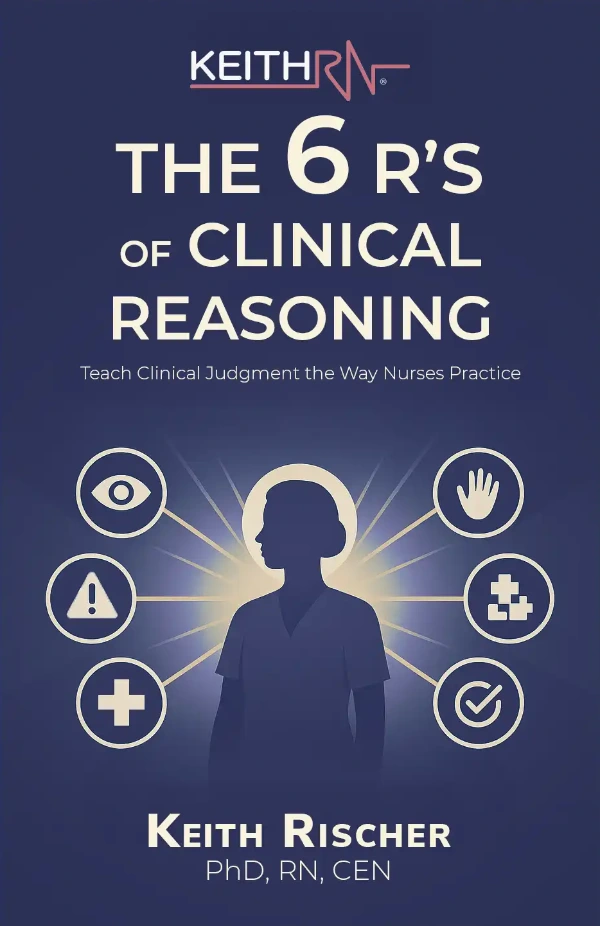
What do Socrates, Jesus, and transformational nurse educators have in common?
They all use the same strategy to develop the deeper thinking that is required for life and professional practice.
What is this simple strategy?
Asking questions.
In order to develop the thinking that students require to be well prepared for practice, nurse educators must learn some essential principles from these historical examples that can strengthen your practice as an educator today!
Lessons from Socrates
Socrates, a Greek philosopher is well known for a unique type of questioning that is called Socratic questioning (see prior blog on Socratic Questions adapted to nursing) that challenges assumptions and in essence asks “why” whenever a decision, assumption, or judgment is made.
Socrates would have been an exceptional nurse educator because he would never spoonfeed his students’ information or knowledge. Instead, he recognized that his primary purpose as an educator/philosopher was to make his pupils think.
Consider this timeless quote by Socrates that needs to be embraced by every nurse educator today:
I cannot teach anybody anything. I can only teach them to think.
This quote, when taken to heart, can lighten the burden that many nurse educators inadvertently place on themselves.
Many educators believe that it is their responsibility to teach students everything they need to know about nursing and if they do not cover the content, it is their responsibility for what may happen in practice if something was missed.
Take this timeless and incredibly insightful quote from Socrates to heart. Your primary objective as an educator is to prepare them for practice by teaching them how to think.
What is the practical pedagogy to accomplish this essential objective?
Ask the right questions!
Lessons from the Good Samaritan
Though Jesus is seen by many as a religious figure, during his time on the earth over 2000 years ago he was also recognized as a teacher who taught with excellence and with authority.
As a master teacher, Jesus also used questions to assess and develop the thinking of those he taught and rebut his harshest critics.
Consider one of his most famous stories that also influenced the relevance and importance of caring and compassion in nursing and the proper response towards all people who are in need…the parable of the good Samaritan.
Though many are familiar with the essence of this story, what is not so well known is that Jesus used a question to answer a question to begin this story and also used a question at the end of this story.
This story can be read in its entirety in Luke 10:25-37. It begins when a lawyer approaches Jesus and asks him, Teacher, what shall I do to inherit eternal life? Jesus then asks a question, “What is written in the law? How do you read it?”
After the attorney gives his response that includes loving God with all your heart and your neighbor as yourself, the lawyer then asks the question to trap and test Jesus (just like come students!), “Who is my neighbor?”
In his response, Jesus begins telling the story of the Jewish priest and Levite who saw but did not respond to the wounded man who had been beaten and left for dead.
The good Samaritan not only saw the man who was wounded and in need of care but was also moved with compassion and sacrificed and gave of himself to care for him.
Jesus then closed this story with the question, “Which of these three, do you think proved to be a neighbor to the man who fell among the robbers?”
The attorney answered and said, “The one who showed him mercy.” Jesus responds, “You go and do likewise.”
Application
Use questions strategically as an educator to develop the thinking of students by doing the following:
- When a student asks a question, do not quickly provide the answer (no spoonfeeding!). Ask another question to identify knowledge and assumptions.
- Use a story to illustrate essential content. Your students will forget much of the content that you teach, but they will never forget the stories that you tell derived from your practice that illustrate the truth of what you are teaching.
- End your story with another question. Don’t assume your students got the message of your story, use a question to highlight what you want your students to take away.
- Have an arsenal of go-to questions that you can use as an educator. The numerous clinical reasoning questions I have developed are a great place to start. Other essential questions include “What if…” Such as “What if the patient’s temperature is now 102? or “What if the BP is now 88/50?” Or keep it simple and be like Socrates and simply ask your students in clinical “Why…?”
In Closing
The use of questions is one of the most powerful strategies you have as an educator to develop the thinking that students require for professional practice.
Learn from the timeless wisdom that both Socrates and Jesus used as master teachers and philosophers to develop the thinking of those they taught.
Resist the urge to spoonfeed students and give them what they want in nicely packaged PowerPoint slide presentations.
Use the science of learning that was discussed in last week’s blog as well as the use of questions in both the class and clinical settings to teach students to think, care, and act like a nurse.
Comment Question:
What questions do you use to teach your students to think like a nurse?
Comment below and let the conversation begin!
Related Blogs
Keith Rischer – PhD, RN, CEN
As a nurse with over 35 years of experience who remained in practice as an educator, I’ve witnessed the gap between how nursing is taught and how it is practiced, and I decided to do something about it! Read more…
The Ultimate Solution to Develop Clinical Judgment Skills
KeithRN’s Think Like a Nurse Membership
Access exclusive active learning resources for faculty and students, including KeithRN Case Studies, making it your go-to resource.




